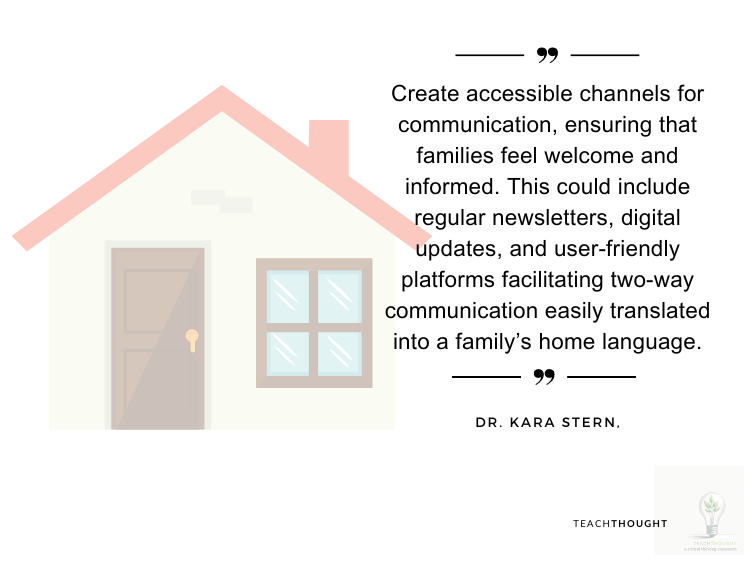contributed by Dr. Kara Stern, SchoolStatus Head of Education Solutions
Recognizing school/home communication’s profound impact on student success and well-being is crucial.
We need to understand school communication as much more than disseminating information—it’s an integral pillar supporting student achievement, as fundamental as curriculum and instruction. Effective school/home communication is essential to an educator’s strategy to nurture student success.
Elevating School/Home Communication: A Vital Component of Family Engagement
The Impact of School/Home Communication
School/home communication shapes a student’s educational experience and overall well-being. Research consistently demonstrates that students with actively engaged families exhibit higher academic achievement, improved attendance, enhanced social-emotional development, and higher graduation rates.
The collaborative efforts between educators and families create a supportive environment, fostering a sense of belonging and motivation crucial for sustained success. It bridges the gap between what happens in the classroom and a student’s life at home. When home adults are informed and involved, students receive consistent support across various aspects of their development.
Beyond Communicating Information
To truly understand the importance of family engagement, it’s essential to recognize that communication isn’t an isolated event—it’s a continuous, integral component of the entire learning process. When families actively participate in their child’s education, they become partners in the learning journey.
Effective school/home communication plays a pivotal role by fostering collaboration between educators and families. It bridges the gap between what happens in the classroom and a student’s life at home. When home adults are informed and involved, students receive consistent support across different aspects of their development.
Truly useful communication ensures that educators and families are on the same page, working together to create a nurturing, holistic environment where students can thrive academically and personally. In this way, school/home communication is as integral to a child’s learning and development as curriculum and instruction.

Tips for Improving Family Engagement via School/Home Communication
Establish Open Lines of Communication: Create accessible channels for communication, ensuring that families feel welcome and informed. This could include regular newsletters, digital updates, and user-friendly platforms facilitating two-way communication easily translated into a family’s home language. Today’s families are texters, so make sure private, secure texting is part of your district communication plan.
Involve Families in Goal Setting
Engage families in setting academic and personal goals for their children. Collaboratively establish expectations and celebrate achievements, fostering a shared commitment to success. An effective way to do this is to embed a Google form in a digital update. Asking families to share their hopes and dreams for their child is a great way to kick off a strong family relationship.
Communicate Consistently
Set a regular cadence for district, building, and classroom updates. Make sure the updates are translatable and sent on a reliable schedule. For home adults who can’t make it to school easily or for whom speaking English is still developing skills, or for whom speaking English is still developing skills, or otherwise effective, comfortable, consistent translatable communications that virtually engage families in the activities of the district/building/classroom to build trust and foster a sense of inclusion.
One sure way to capture a family’s attention is to keep your updates visual. Include plenty of photos, videos, and screenshots to create visual appeal (and get parents searching for their child!)
Celebrate What You Value
For example, if your focus is attendance, make sure a positive attendance feature is part of your weekly update: create a shout-out section, an Attendance Wall of Fame, an ADA ticker, or even an incentive program. If your focus is progress on a curriculum unit, share pictures of students working and completed student work, provide some ‘As Your Child About’ questions for families to help students extend their learning, and link to any resources or assignments parents should know about.
See also Alternatives To How Was School?
Utilize Technology Wisely
One-way communications, like translatable digital newsletters and updates, are ideal for getting information to every family and bridging the divide between home and school. However, they must be complemented by translatable two-way communications and one-to-one outreach between an adult school community member (teacher, counselor, principal, coach) and an adult family member.
Digital platforms come with analytics, and the data tells a powerful story. One critical narrative line is understanding, which requires one-to-one outreach.
Celebrate Diverse Achievements: Acknowledge and celebrate the diverse achievements of students. Recognize that success takes various forms and involves the collaboration of educators, families, and students.
The power of communication between educators and families is transformative. By recognizing the continuous nature of family engagement and implementing simple tips to enhance communication and involvement, we can create an educational environment where students thrive academically, socially, and emotionally.
Dr. Kara Stern is Head of Education Solutions at SchoolStatus, a fully integrated data analytics and communications platform designed to improve student outcomes through a unique combination of comprehensive data and direct school-home engagement. She came to SchoolStatus via Smore, a leading digital school newsletter platform. A former teacher, middle school principal, and head of school, she holds a Ph.D. in Teaching & Learning from NYU.



